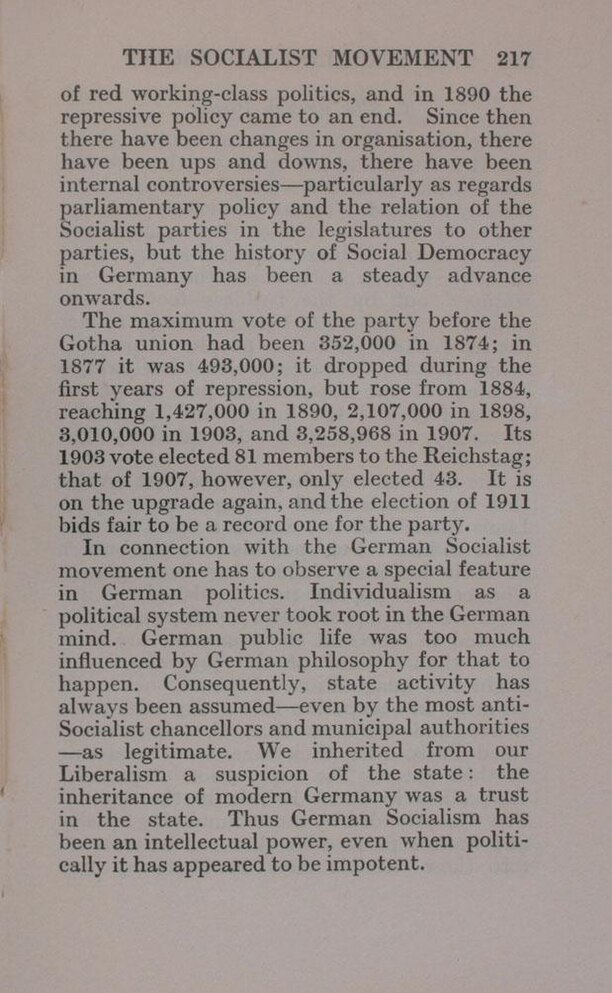of red working-class polities, and in 1890 the repressive policy came to an end. Since then there have been changes in organisation, there have been ups and downs, there have been internal controversies—particularly as regards parliamentary policy and the relation of the Socialist parties in the legislatures to other parties, but the history of Social Democracy in Germany has been a steady advance onwards.
The maximum vote of the party before the Gotha union had been 852,000 in 1874; in 1877 it was 493,000; it dropped during the first years of repression, but rose from 1884, reaching 1,427,000 in 1890, 2,107,000 in 1898, 3,010,000 in 1903, and 3,258,968 in 1907. Its 1903 vote elected 81 members to the Reichstag; that of 1907, however, only elected 43. It is on the upgrade again, and the election of 1911 bids fair to be a record one for the party.
In connection with the German Socialist movement one has to observe a special feature in German politics. Individualism as a political system never took root in the German mind. German public life was too much influenced by German philosophy for that to happen. Consequently, state activity has always been assumed—even by the most anti-Socialist chancellors and municipal authorities—as legitimate. We inherited from our Liberalism a suspicion of the state: the inheritance of modern Germany was a trust in the state. Thus German Socialism has been an intellectual power, even when politically it has appeared to be impotent.
